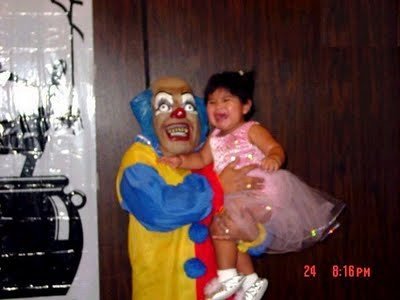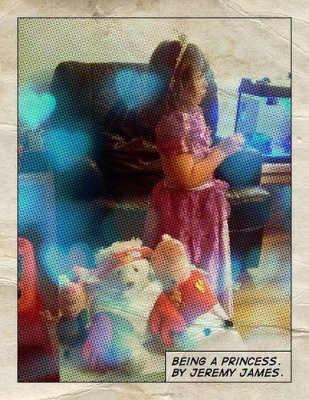Bad Parents – Worried You are One?

By: Dan Harrelson
by Andrea M. Darcy
Occasionally lose your temper with your kids for all the wrong reasons? It doesn’t make you bad parents.
Nor does occasionally wondering why you ever thought having kids was a good idea.
But bad parenting does happen, and it’s a serious issue that affects a child’s future health and ability to cope. If you deep down know your kids don’t respect you, this article is for you.
What are ‘bad parents’?
We don’t have to practise narcissistic parenting or put our kids through something as extreme as Munchausen syndrome to be falling under the bad parenting category.
It can help to think of your relationship with your child like any other relationship, instead of thinking it is different because you are ‘the adult’.
A good relationship is not the result of good intentions. So just ‘wanting the best’ for your child does not make you a good parent. Like any relationship, we instead need clear boundaries, realistic expectations, and respect for the other person and their wellbeing.
Bad parents consistently put their child’s wellbeing at risk. This doesn’t have to be the child’s physical wellbeing, it can be their mental and emotional wellbeing.
Then what is a ‘good parent’?
Attachment theory is a good guide here. It is a long established school of psychological thought that has shown for a child to grow up into a healthy, functioning adult? They don’t need just food, clothes, and shelter.
A child’s mental and emotional needs must be met, and for this they must have at least one caregiver who they can trust implicitly to consistently love, accept, and protect them no matter what.
It doesn’t mean that you cannot disagree with or discipline your child, or make parenting mistakes. It means that his or her behaviour, moods, words, and achievements never affect the fact that you are a safe space for him or her.
This explains why a child who grows up in utter poverty but with a parent who loves and accepts them unconditionally grows up into a higher functioning adult than that ‘poor little rich kid’ who had everything on the surface, but parents who manipulated him to be a ‘good’ boy, and rejected him if he annoyed them.
The many forms of bad parenting

By: simosmme
There are very obvious forms of bad parenting we all know. Physical abuse or physical intimidation, sexual abuse, neglect, or allowing others to hurt your child are unacceptable forms of parenting. If this is you, seek support immediately.
But what about the less obvious forms of bad parenting?
When we are using behaviours that make a child feel unsafe, unaccepted, and unloved? We have fallen into bad parenting.
This can look like:
Verbal abuse.
- calling your child names
- mocking or humiliating a child
- making jokes about a child in front of them
- constantly criticising a child
- threatening a child with pain or harsh punishment
- telling a child they are not good enough or lesser than others
- shaming a child for something beyond their control (bed wetting, illness)
- telling a child the other parent doesn’t love them or you don’t love them.
Psychological abuse and manipulation.
- blaming your child for something he or she didn’t do
- or blaming them for your unhappiness and current situation
- comparing one child to another in front of him or her
- controlling your child because you can
- never giving them any choice
- mocking them for being a child
- not letting your child grow up, keeping them a ‘little girl’ or ‘little boy’
- stopping your child from having friends
- obviously prioritising one sibling over another
- speaking about a child like they are not there
- threatening to abandon a child
- doing things you know make your child feel fear
- pushing your child to do dangerous things (jump from a height, run across a street)
- punishing a child for telling the truth
- making your child wear uncomfortable clothes they don’t like
- locking your child into a confined space or leaving them in the dark.
Using love and attention as a reward instead of a right is a form of psychological abuse. Remember, a child needs to feel accepted and loved no matter what.
Psychological neglect.
- not letting your child talk or refusing to listen to him or her
- making no effort to understand how your child feels
- expecting a child to understand adult issues
- taking out your bad moods on your kids
- not spending time with your children
- being physically present but not mentally
- always on your phone or iPad around children
- refusing to show a child love
- not offering any physical affection
- never praising your child or showing you are proud
- making no effort to set a good example for your child.
A 2019 study carried out Loma Linda University in America found that ‘cold parenting’ actually affects the DNA of children, leading to premature ageing and a higher risk of disease when they are adults.
Inconsistency and lack of safety.
- having mood swings daily or weekly your child witnesses
- rewarding a child for something one week then punishing for the same the next
- saying one thing and doing another
- not giving a child any structure to rely on – inconsistent meal times, bed times
- one parent who contradicts the other
- giving your child a choice but then making it for them
- no clear household rules or ones that constantly change
- no clear boundaries.
Lack of parental control.
- allowing a child to manipulate you, belittle you, or physically assault you
- giving in to a child every time
- overcompensating when things go wrong
- buying a child whatever he or she wants
- no clear and fair system of discipline and praise
- one parent using the child to gang up on the other parent.
But I give my kids everything and still they aren’t happy

By: Jeremy Atkinson
Good parenting begins with good self-care. It’s hard to be a good parent if we are always exhausted and miserable and neglecting our own needs.
If you are always in martyr mode, then you give your children the message that they are the source of your unhappiness, or that you’d be better off without them.
Constantly saying things like “I give you everything and still you aren’t happy”, or, “You have no idea how much I gave up for you”? It’s actually psychological manipulation.
This sort of manipulation can come from expecting your children to be the source of your happiness and your identity. This is codependent parenting and stems from low self-esteem. It is not a child’s job to make you feel good about yourself.
I try, but I can’t stop being a bad parent
Bad parenting can actually be addictive. It comes with a rush of power. If we ourselves grew up always feeling powerless, this can fill a long hidden need, albeit it in a very negative way.
Nobody is born a bad parent. We become one because we weren’t parented well ourselves, or experienced traumas we haven’t actively healed. Our own mental and emotional issues haven’t been dealt with, and our children trigger them.
We end up in a vicious cycle of using our children to work out our issues instead of being a proper parent.
How do I stop bad parenting?
Admitting there is a problem is the first big step.
From there, education is key. Approach parenting like a degree you want to qualify for. Read books, join forums, watch programs about parenting. Learn what is and is not acceptable in parenting, and what your child needs from you.
Bad parenting often requires serious support to see real change. It comes from long unresolved issues that need committed deep-diving to repair — but that absolutely can be fixed.
A parenting coach can be a good start to help you take immediate action to have a more structured and consistent household and start to recognise your bad habits.
Can’t stop being emotionally and mentally triggered by your children? It’s time to seek proper support in the form of counselling and psychotherapy. Find a counsellor or psychotherapist you feel you can grow to trust. He or she will not judge you, but will create a safe space for you to get to the roots of your parenting struggles.
If the problem is that you and your partner war over parenting, leaving your children lost in the fray? Consider couples counselling. A couples counsellor isn’t there to tell you what to do, but to help you communicate in constructive over destructive ways, set goals, and move forward.
Ready to step up and face your parenting issues for once and for all? Harley Therapy connects you with top London psychotherapists and couples counsellors. Not in London? Use our booking site to find a UK-wide registered therapist or try online therapy from anywhere in the world.
 Andrea M. Darcy is a mental health and wellbeing expert with training in person-centred counselling and coaching. She often writes about trauma and relationships, and works as a consultant helping people plan their perfect therapy journey. She didn’t get much parenting growing up so this article was eye opening to write! Find her on Instagram @am_darcy
Andrea M. Darcy is a mental health and wellbeing expert with training in person-centred counselling and coaching. She often writes about trauma and relationships, and works as a consultant helping people plan their perfect therapy journey. She didn’t get much parenting growing up so this article was eye opening to write! Find her on Instagram @am_darcy





Hi, i struggle with setting down my son who 3 years old he physically hits out at me I try my best not to shout or yell I just feel I’m drowning constantly with no help from his dad